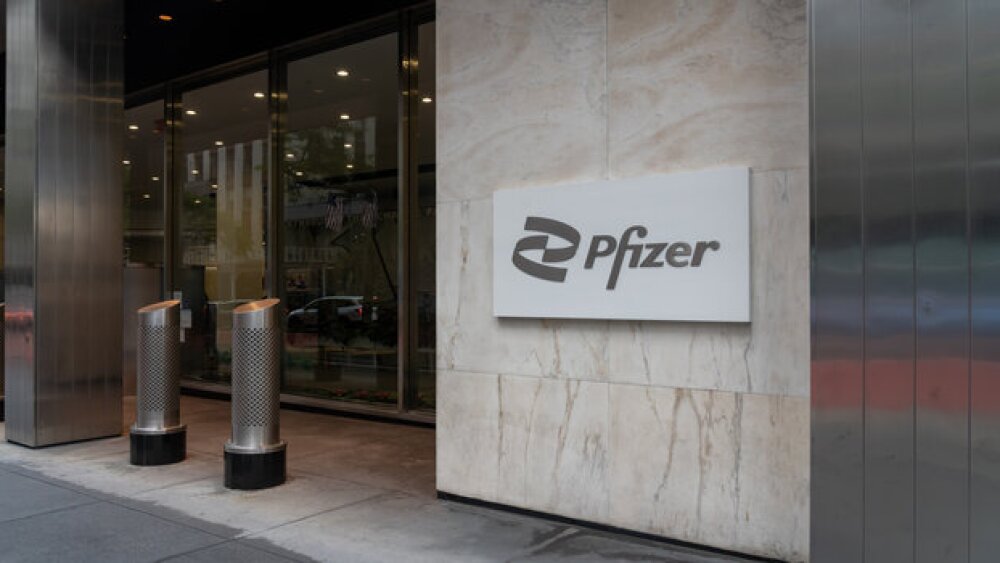Eli Lilly and Company (NYSE: LLY) and Banner Alzheimer’s Institute today announced a strategic research collaboration as part of the planned Phase 3, randomized, placebo-controlled study evaluating donanemab in participants at risk for cognitive and functional decline related to Alzheimer’s disease.
Trial will include participants at risk for cognitive and functional decline related to Alzheimer’s disease |
| [15-July-2021] |
| INDIANAPOLIS and PHOENIX, July 15, 2021 /PRNewswire/ -- Eli Lilly and Company (NYSE: LLY) andBanner Alzheimer’s Institute today announced a strategic research collaboration as part of the planned Phase 3, randomized, placebo-controlled study evaluating donanemab in participants at risk for cognitive and functional decline related to Alzheimer’s disease (TRAILBLAZER-ALZ 3). TRAILBLAZER-ALZ 3 will evaluate whether treatment with donanemab can slow the clinical progression of Alzheimer’s disease in trial participants. As part of the collaboration, Banner will leverage its expertise and proven leadership in Alzheimer’s prevention trials, and support enrollment of trial participants with and without the e4 type of the apolipoprotein E (APOE4) gene through the Alzheimer’s Prevention Registry’s GeneMatch program. The collaboration will introduce a more virtual approach to the evaluation of Alzheimer’s prevention therapies. Lilly and Banner are committed to using the screening and treatment data as a shared scientific resource. Lilly remains the sole sponsor of the clinical trial and plans to begin enrollment later this year. “This collaboration combines Lilly’s more than 30 years of dedication to Alzheimer’s research with Banner’s unique expertise and showcases our collective commitment to partner within the health care community to find potential treatments to end this devastating disease,” said Mark Mintun, M.D., vice president of pain and neurodegeneration, Lilly. “Our TRAILBLAZER-ALZ 3 trial will evaluate whether donanemab can prevent clinical progression in patients who have evidence of Alzheimer’s pathology, but don’t yet demonstrate clinical symptoms. While these types of trials are challenging to enroll and conduct, Lilly, together with Banner, is proud to undertake the opportunity to bring about this new study in an area of high unmet medical need.” “We are excited about the chance to work with Lilly in the effort to find an effective Alzheimer’s prevention therapy as soon as possible, introduce novel ways to increase the size, speed, and ease of participating in Alzheimer’s prevention trials, and do so in ways that might benefit the entire field,” said Eric M. Reiman, MD, Banner Alzheimer’s Institute executive director and one of the study’s lead principal investigators. “We must do everything we can to find and support the availability of effective prevention therapies for this devastating disease, and this trial includes several potentially transformational elements to help in this endeavor.” Donanemab is an investigational antibody that targets a modified form of beta amyloid called N3pG. Results from a Phase 2 study of donanemab were announced earlier this year. Visit LillyMemoryTrials.com for additional information on enrolling in Alzheimer’s disease trials. Donanemab is also being studied in the ongoing Phase 3 TRAILBLAZER-ALZ 2 study in early, symptomatic Alzheimer’s disease patients. To learn more about the TRAILBLAZER-ALZ 2 study or to see prequalifications, visit www.trailblazer2study.com. About Alzheimer’s Disease In an addition to age and family history of AD, the greatest risk factor for developing AD is the presence of the apolipoprotein E ε4 (APOE4) allele.1 Having one APOE4 allele increases the risk of developing Alzheimer’s disease by approximately three times compared with those with two copies of the APOE3 form. Those who inherit two copies of the APOE4 allele have an 8 - 12-fold risk. In addition, those with the APOE4 allele are more likely to have beta-amyloid accumulation and Alzheimer’s dementia at a younger age than those with the APOE2 or APOE3 forms of the APOE gene. About Banner Alzheimer’s Institute About Alzheimer’s Prevention Initiative About Eli Lilly and Company Lilly Cautionary Statement Regarding Forward-Looking Statements This press release contains forward-looking statements (as that term is defined in the Private Securities Litigation Reform Act of 1995) about donanemab as a potential treatment for people with Alzheimer’s disease, the timing for Lilly’s trials, and the benefits of a collaboration with Banner Alzheimer’s Institute and reflects Lilly’s current beliefs and expectations. However, as with any such undertaking, there are substantial risks and uncertainties in the process of drug research, development, and commercialization. Among other things, there is no guarantee that future study results will be consistent with study results to date, that donanemab will prove to be a safe and effective treatment for Alzheimer’s disease, that donanemab will receive regulatory approval, that Lilly will realize the expected benefits of the collaboration, or that Lilly will execute its strategy as expected. For further discussion of these and other risks and uncertainties, see Lilly’s Form 10-K and Form 10-Q filings with the United States Securities and Exchange Commission. Except as required by law, Lilly undertakes no duty to update forward-looking statements to reflect events after the date of this release.
SOURCE Eli Lilly and Company | ||||||||
Company Codes: NYSE:LLY |






